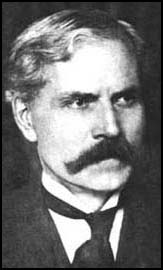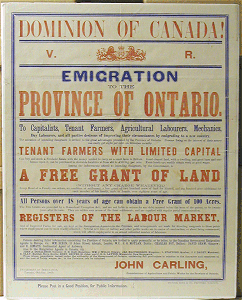Why had so many Irish migrated to Scotland by 1900?
Population
Poverty
Potatoes
Protestants
Salaries
Short journey
Population: This had doubled in Ireland in the first 40 years of the 1800s. Land was divided up among families again and again. Most families had only a small area of land to feed themselves. This encouraged Irish people to try their luck in Scotland.
Poverty: The doubling of the population also increased poverty. Many landowners were absentees and wanted to increase the value of their lands. Families who could not pay their rent were evicted.
Potatoes: The ability to grow potatoes was the only thing which allowed poor Irish farmers to feed their families. The Potato Blight arrived in the 1840s and destroyed the potato crop. The British government did hardly anything to help and the Irish had no choice but to leave.
Protestants: Most poor Irish were Catholic. Irish and British Protestants ran Ireland and got the best jobs or any jobs which were going. Another reason why the Irish left.
Salaries: Wages were higher in Scotland. Industry was developing also and so there was a good chance of the whole family earning a wage. Many employers welcomed the Irish because they could be used as cheap labour.
Short journey: Scotland was close to Ireland. This made the journey short and cheap. Going to Scotland for work was not new. It had been happening for generations.
Why were Scots emigrants welcomed in many countries?

Skills
Culture
Education
Language and numbers
Individuals
Skills: Scotland was one of the first countries to go through an industrial revolution. Industries like coal mining, steel making, railway building and ship building developed first in Scotland and the rest of Britain. This gave Scots a head start in the skills and know-how needed to set up and operate these industries. Scots workers were in great demand because of these special skills which they brought to their new countries.
Culture: Scots brought their culture with them. People in other countries were interested in Scottish culture such as the kilt, bagpipes etc. People in other countries also knew about Scotland through the poetry of Robert Burns and the books of Walter Scott (Rob Roy) and Robert Louis Stevenson (Kidnapped). Theatre stars such as Harry Lauder made Scottish culture appealing to a huge audience. So Scots had a ready made "introduction" when they went to other countries.
Education: Scotland has always had a reputation for the quality of it's education. In the middle ages, Scotland had 3 universities. After the Protestant Reformation, education was important so that everyone could read the Bible. During the 18th century "Enlightenment" Scotland was famous for its thinkers like Adam Smith and David Hume. Even poor farmers like Robert Burns were well educated. When Scots went to their new countries, they set up schools and colleges. This benefited the local people as well as the Scots. Education was a key reason why Scots were welcome.
Language and numbers: Large numbers of Scots left Scotland but not as many as left other countries such as Ireland, Germany or even Russia. The Scots were small in number compared to these emigrants. Scots also spoke English and this helped them to "blend in" more easily in their new countries. These facts made the Scots less "threatening" to the people who already lived in countries such as the USA, Canada etc.
Individuals: Some individual Scots became famous in their new countries. People like Andrew Carnegie (USA), John Dunmore Lang (Australia), Alexander Mackenzie (Canada) all had huge reputations in their new countries. This gave Scots migrants a great boost compared to other immigrant groups who did not have these "role models".
Explain why many Scots left to go overseas between the 1830s and 1930s.
A good way to organise this essay is to divide it into 3.
- Reasons to do with Highland emigration
- Reasons to do with Lowland emigration
- Other reasons
Clearances - landowners got rid of people and replaced them with sheep and deer.
Hunger - Highlanders relied on potatoes just like the Irish. Potato blight hit the Highlands too.
Poverty - the Highlands had poor weather and poor soil. It was difficult to scratch a living.
Tradition - Highlanders had been emigrating since the 1700s. Places like Canada and Australia were well known to Highlanders and they had little fear of emigrating there.
Lowlands
Skills - many lowlanders had good skills in engineering and other trades. They knew they could get work in their new countries.
Wages - were often low in Scotland's industries. Lowland Scots knew they could get more money in countries where their skills were in demand.
Unemployment - was often high in Scotland and was very high indeed in the 1920s and 1930s.
Other
Convicts - were forced to emigrate to Australia. They had no choice.
Orphans - were sent to Canada and Australia by charities like Barnardo's






